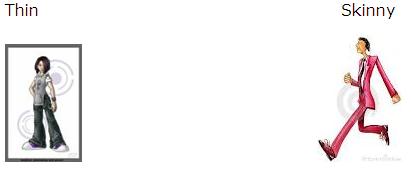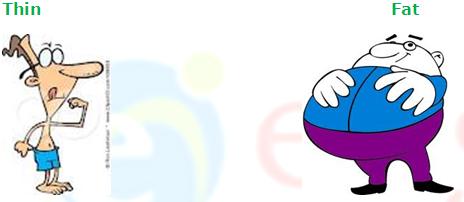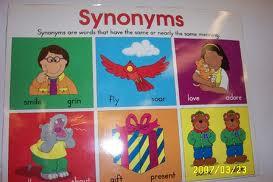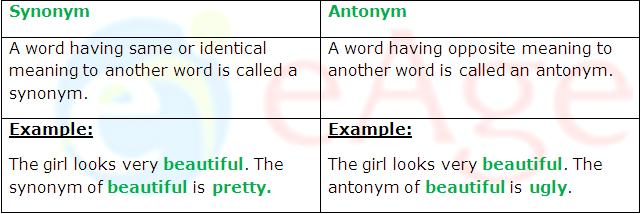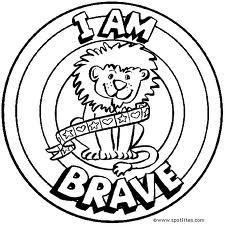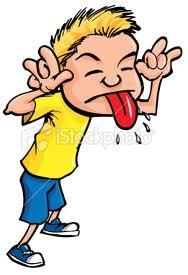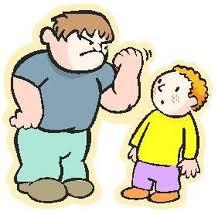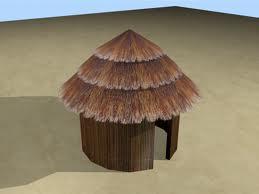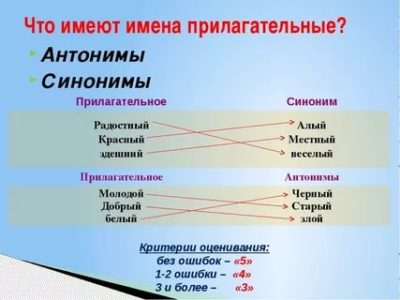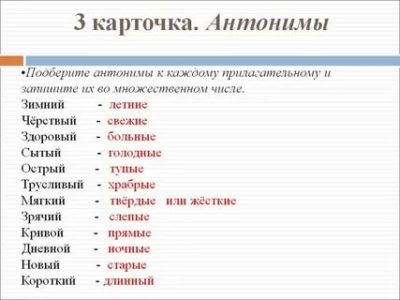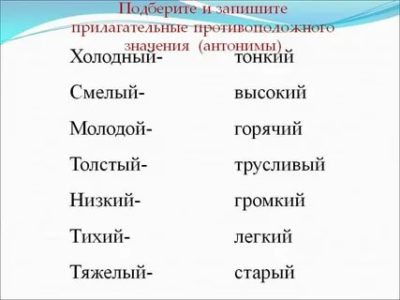What words, phrases or idioms mean the opposite in British and American English?
There are numerous examples to draw on.
The classic one is to table, a verb that has two contradictory meanings particularly in the context of parliamentary or legislative procedure.
In the English-speaking world except the USA, to table means to put a motion on the agenda for consideration or reconsideration.
In the USA, however, to table means to postpone or to suspend consideration of a pending motion — in short, to shelve it.
Try these common ones too:—
bomb vs. the bomb
Bomb means failure in both American and British English, but the bomb is only in British English and means a success (or “better than the rest”).
The mid-1970s was probably the last time I heard the bomb used in the USA to mean a success, and it was among surfers. Having said that, the expression’s ‘success’ meaning is still going strong in some parts of California (among surfers probably) to mean a great and cool thing — including updated forms such as “bomb dot com” (ca. 2009) and “bomb diggity” (ca. 2004).
Many of us will recall the bomb being popular enough in the 1990s even in the USA to describe music — some might have said so-and-so band “is the bomb” (meaning better than the rest).
The bomb as ‘success’ lives on in American English but sounds a little bit dated.
chuffed
Chuffed means pleased. It’s a British idiom or slang (can’t remember which) and was made famous in 1964 by British author Harold Pinter:— “chuffed to the bollocks” (immensely pleased; happy as a clam).
Not really a word in American English generally, but most Americans seem to think chuffed means “upset,” which it doesn’t.
discursive
This word discursive is often used for describing essay or writing structure or otherwise in literary analysis. The American and British meanings are complete opposites:—
- American — rambling or freeform
- British — strictly structured
The real question is, why can’t they just spell it out and say “rambling,” “freeform” or “strictly structured,” right? Make a sincere effort to avoid ambiguity.
homely
Throughout North America, homely is usually applied to a person and means unattractive, unappealing or even ugly. In short, unprepossessing. The opposite is comely (pleasing or attractive to the eye).
However, homely in British English and most of the English-speaking world means pleasantly comfortable or cosy. It’s often applied to surroundings and places instead of people (as in property listings:— “a homely townhouse in bustling West End London”).
But homely is great fun in British English because it can have several contradictory meanings depending on what it’s applied to:—
FOR OBJECTS OR IDEAS
Positive/neutral connotations — plain and unpretentious
- homely truths
- homely advice
- homely fare/meals
Positive/neutral connotations — without artificial refinement or elegance
- plain homely furniture
- homely manners
Negative connotations — unprepossessing and without beauty
- some of the buildings were downright homely
FOR A PERSON
Positive connotations — unpretentious, kind, gracious and cordial
- a homely, marriageable woman
Neutral/negative connotations — lacking (or still lacking) in physical beauty or proportion
- a homely child
Negative connotations — unsophisticated and domestic
- a homely girl with a freckled face and rube comportment
Just like in North America, the opposite to homely for a person is comely.
momentarily
Fun to watch the wordniks bicker over this one.
The meanings are the same in British and American English, but the meanings vary according to the TENSE.
momentarily — Past and Present tenses only (British and American)
- for a brief moment
- for a short duration
- only briefly (only for a brief time)
momentarily — Future tenses only (British and American)
- in a short while
- shortly or soon in Americanspeak
- presently or soon or almost immediately in Britishspeak
In good, clean, crisp English, we would NOT use momentarily in any Future tenses to mean “for a short duration.”
Examples:—
Past tenses
We listened momentarily to him droning on about the policy. (Only briefly)
We ate momentarily at that restaurant. (For a brief duration)
Present tenses
He listens momentarily to the radio. (Only briefly)
They are momentarily reordering the parcels. (For a brief time)
Future tenses
We will be taking off momentarily. (Shortly, presently)
Not:— We will momentarily be taking off.
We will arrive at the destination momentarily. (Shortly, presently)
Not:— We will arrive momentarily at the destination.
Not:— We will momentarily arrive at the destination.
We will stay at the Casa Blanca for a short while before moving on.
Not:— We will stay at the Casa Blanca momentarily before moving on.
In all Future tenses, the correct placement of momentarily is away from the verb as far as the sentence structure allows. In practice, it’s nearly always at the end of the sentence, and the sentence is also nearly always a short one.
The wordniks love to assert that momentarily can only mean “for a short period of time” — and to use it to mean ‘shortly’ or ‘soon’ is an argument for teaching English properly. They couldn’t be more wrong if they tried — a case for their learning English properly.
Question is, how does one determine what’s present and what’s future in real life?
nonplussed
Nonplussed actually means bewildered or perplexed, but many Americans mistakenly use it to mean ‘unfazed.’ The word is never hyphenated.
The traditional English pronunciation is “non-ploozd” to stick closer to its Latin original nōn plūs (“no more, no further“) from the 1600s. This still remains the one taught in the better English-medium schools worldwide.
The UK pronunciation since at least the 1970s has become “non-plŭst” (/nɒnˈplʌst/) with the “ŭ” sounding like run, enough or up (click here for sound of the open midback unrounded vowel). This is the correct modern pronunciation there.
The correct American pronunciation has always been “non-plast” (/ˈnɑnˈpləst/) with the schwa ‘ə’ rhyming with about (click here for schwa sound).
quite
Generally speaking, quite in American English means completely.
In British, it’s often in the sense of slightly (quite tolerable).
The trouble is that British English has more shades of meaning for most words than American English has, so quite could just as well mean slightly, significantly, substantially or even completely (quite stupid: ‘noticeably stupid’) depending on the surrounding context.
It’s never a 100% match. Two countries separated by a common language, as the saying goes.
shopping
The use of shopping shows up a very old-fashioned difference between the older and younger generations.
To nearly everyone around the world, shopping takes on the predominant American sense — buying things in shops (and usually slightly more expensive than the groceries).
In pre-World War Two British usage and for some really old British people, shopping meant going to the shops and browsing there — buying stuff is only an incidental byproduct of that activity. “We went shopping” meant looking around various shops rather than to buy things. It’s a bit like window-shopping, if that helps.
That difference is worth knowing (especially for reading ‘dated’ material), though we have to pragmatic and accept shopping just means buying things in shops in any form of modern English.
torrid
In British English for general usage, torrid has two meanings:—
Physical conditions — very hot and dry (the torrid heat of the place)
Non-physical conditions — very bad or full of difficulty (Wall Street will be in for a torrid time)
In American English for general usage, torrid means very intense (a torrid love affair).
Most British English speakers tend to limit their usage of torrid for most things except to describe a very intense love affair.
© Learn English or Starve, 01 Aug 2017. (B17119)
Original text 29 Jul 2014. (1,249 words)
CHANGELOG
04 Aug 2017 (minor edits for improved readability)
Featured image via Facilitate.
A contronym, often referred to as a Janus word or auto-antonym, is a word that evokes contradictory or reverse meanings depending on the context. Specifically, a contronym is a word with a homonym (another word with the same spelling but different meaning) that is also an antonym (a word with the opposite meaning).
What is a word for same but different?
Homonyms are two words that are spelled the same and sound the same but have different meanings. The word “homonym” comes from the prefix “homo-,” which means the same, and the suffix “-nym,” which means name.
What are 20 examples of homonyms?
List of homonyms in English.
- Address – Address.
- Band – Band.
- Bat – Bat.
- Match – Match.
- Mean – Mean.
- Right – Right.
- Ring – Ring.
- Rock – Rock.
What is similar to but?
“Yet” can often replace “but” in a sentence without changing anything else, as both are coordinating conjunctions that can introduce a contrast. Alternatively, you could use one of these subordinating conjunctions: Although (e.g., I like Brian May, although I find his hair ridiculous.)
Is it OK to begin a sentence with but?
Of course, there are style guides that discourage it, but it’s perfectly acceptable to begin a sentence with “but” when writing. Using any stylistic quirk too frequently spoils your writing. By all means, start sentences with “but” from time to time, but remember that “but” also belongs after a comma.
Is but a negation?
The word but is used to signify a negation, to create contrast. …
How do you replace the word but?
other words for but
- although.
- however.
- nevertheless.
- on the other hand.
- still.
- though.
- yet.
Where can I use but?
Grammar. We use but to link items which are the same grammatical type (coordinating conjunction). But is used to connect ideas that contrast. … But means ‘except’ when it is used after words such as all, everything/nothing, everyone/no one, everybody/nobody: …
Is the comma after but?
You should put a comma before but only when but is connecting two independent clauses. When you don’t have two independent clauses, leave the comma out. I would go for a walk, but for the rain. This time, but is connecting an independent clause to a dependent clause.
Do I need a comma checker?
A comma is one of the most important punctuations to check. Don’t forget using it when trying to separate items in a list or a series. This is very important to avoid misleading your readers of combining nouns, adjectives or adverbs when in fact they have to be separated for clarity.
How do you identify a comma splice?
Look at what comes before the comma, and then what comes after it. Are both sides complete sentences on their own? (In other words, could you also put a period in that spot?) If so, you’ve found a comma splice.
Have been and had been?
“Had been” is used to mean that something happened in the past and has already ended. “Have been” and “has been” are used to mean that something began in the past and has lasted into the present time.
What are Synonyms and Antonyms:
Synonyms are words that have similar meaning Two different words that mean the same are said to be synonymous and the quality of being synonymous is known as synonymy. The term synonym has been derived from a Greek word called syn which means ‘with’ and onoma which means ‘name’. Antonyms are words that have opposite meaning to another word. Two words that mean the opposite are said to be antonymous. Antonym has been derived from a Greek word called anti which means ‘opposite’ and onoma which means ‘name’.
Example of Synonym:
The girl is very thin. The skinny man runs fast.
In the above mentioned sentences, thin and skinny mean the same. Both of the words (thin and skinny) are used to describe a person who is very lean.
Example of Antonym:
He has become very thin. Look at that fat man!
In the above mentioned sentences, thin and fat are opposites and hence they are regarded as antonyms.
Difference between Synonym and Antonym
Few More Examples of Synonyms and Antonyms
Below mentioned are the examples of synonyms and antonyms.
Synonym:
Brave
I am very brave. The synonym of brave is courageous.
Naughty
The boy is very naughty. The synonym of naughty is mischievous.
Big
The house is too big. The synonym of big is huge.
Antonym
Timid/Shy
The boy is very timid. The antonym of brave is timid.
Courteous
That man is very courteous. The antonym of naughty is courteous.
Small
My grandmother lives in a small hut. The antonym of big is small.
Synonym and Parts of Speech
There are eight parts of speech in English. A synonym can be any part of speech. It can be a verb, adjective, adverb, preposition but both the words should be the same part of speech.
Example:
• Verb
Manage-handle
• Adjective
Happy-glad
• Adverb
Nevertheless-still
• Preposition
Below-under
Difference Between Synonym, Antonym and Homonym
A word having similar meaning to another word is known as synonym. A word having opposite meaning to another word is known as antonym. Words that have same spelling and pronunciation, but different meanings are known as homonyms.
Example:
Synonym
The tiny man came near us. Little is a synonym of tiny.
Antonym
You are doing a good job! Bad is an antonym of good.
Homonym
Rock (a large mass of stone), rock (a kind of music)
Want to know more about “Synonym and Antonym?” Click here to schedule live online session with e Tutor!
About eAge Tutoring:
eAgeTutor.com is the premier online tutoring provider. eAge’s world class faculty and ace communication experts from around the globe help you to improve in an all round manner. Assignments and tasks based on a well researched content developed by subject matter and industry experts can certainly fetch the most desired results for improving spoken English skills. Overcoming limitations is just a click of mouse away in this age of effective and advance communication technology. For further information on online English speaking course or to experience the wonders of virtual classroom fix a demonstration session with our tutor. Please visit www.eagetutor.com.
Contact us today to know more about our spoken English program and experience the exciting world of e-learning.
Reference Links:
- http://en.wikipedia.org/wiki/Synonym
- http://simple.wikipedia.org/wiki/Synonym
- http://www.brainpop.com/english/grammar/antonymssynonymsandhomonyms/preview.weml
Some words are just weird. You think you’re using them correctly, but then there’s that moment of doubt. Does that word mean something else entirely? One of the ironies of the English language is that occasionally, both meanings are correct — even if they’re wildly different.
What Is a Contronym?
A contronym (also called a contranym or an autoantonym) is a word with two meanings that happen to be the opposite of each other. Specifically, according to the grammarly blog, «a contronym is a word with a homonym (another word with the same spelling but different meaning) that is also an antonym (a word with the opposite meaning).»
But some strict grammarians point out that technically they’re words with homographs, which are homonyms that are pronounced the same. (If they’re pronounced differently then they’re heteronyms.)
Got that? (We’ll let the true word geeks dig into that debate.)
Contronyms are also sometimes referred to «Janus words» after the two-faced Roman god. Here are 30 contronyms and their contradictory, two-faced definitions.
Bolt
To separate by fleeing or to hold together (as with a bolt)
Bound
Going toward a destination or restrained from moving
Buckle
To fasten together (with a buckle) or to bend or collapse from pressure
Cleave
To adhere firmly and closely or to split apart
Clip
To fasten (as with a paperclip) or to detach with shears (clipping your hair or your hedges)
Consult
To give advice or to get advice
Custom
A common practice or a specially made item
Dust
Dust off your dictionary. Some words (like dust) can have clashing meanings.
d8nn/Shutterstock
To cover something with a fine power or to make something clean by brushing or removing dust
Enjoin
To order someone to do something or to prohibit someone from doing something
Fast
Firmly fixed and unmoving or able to move rapidly
Finished
Completed or destroyed
Garnish
To add decorative touches (to food or drink) or to take/withhold from (as in wages)
Handicap
An advantage given to equalize chances of winning (as in golf) or a disadvantage that makes equality difficult
Lease
To rent property or to offer property for rent
Left
Departed or remained behind
Model
The original, perfect example or a copy
Off
Not operating (turn off the light) or operating (the alarm went off)
Out
Visible (the stars are out) or invisible (the lights are out)
Overlook
To watch or to fail to notice
Oversight
Watchful, responsible care or a mistake made due to forgetfulness or poor supervision
Peruse
To skim or to read very carefully
Ravel
To separate or to become entangled
Rent
To lease something or to offer an something for lease
Sanction
To boycott or to approve
Screen
To hide or to show (like a movie)
Seed
To seed a watermelon is to remove seeds. To seed a lawn is to add them.
Regreto/Shutterstock
To add seed («seeding the lawn») or to remove seed («seeding a watermelon»)
Strike
To hit or to miss while trying to hit
Trim
To add (decorations) or to take away (extra hair or fabric, for example)
Wear
To endure or to deteriorate
Weather
To withstand or to be worn away
Photos:
Bolt and nut: Jaing Hongyan/Shutterstock; to flee: 007Nataliia/Shutterstock
Golf ball: Franck Boston/Shutterstock; wheelchair symbol: veronchick84/Shutterstock
It is difficult to find antonyms for words. What are antonyms and examples of their enrichment of the Russian language. What is the antonym
Antonyms are words that are different in sound and have opposite meanings: lie is true, evil is kind, to be silent is to speak. Examples of antonyms show that they refer to the same part of speech.
Antonymy in Russian is presented much narrower than synonymy. This is due to the fact that only words enter into antonymic relations that are related in terms of quality (good — bad, native — alien, smart — stupid, thick — rare, high — low), temporary (day — night, early — late), quantitative (the only one — multiple, many — few), spatial (spacious — close, large — small, wide — narrow, high — low) signs.
There are antonymic pairs denoting the names of states, actions. Examples of antonyms of this kind: rejoice — grieve, cry — laugh.
Types and examples of antonyms in Russian
In terms of structure, antonyms are divided into different roots (morning — evening) and one-root (go in — go out). The opposite of meaning for single-root antonyms is caused by prefixes.
However, it should be remembered that the addition to adverbs and prefixes without-, not— in most cases, attaches to them the meaning of a weakened opposite (high — low), so the contrast of their values turns out to be «muted» (low — this does not mean «low»).
Based on this, not all prefix formations can be attributed to antonyms, but only those that are the extreme points of the lexical paradigm: strong — powerless, harmful — harmless, successful — unsuccessful.
Antonyms, as well as synonyms, are closely related to ambiguity: empty — serious (conversation); empty — full (cup); empty — expressive (look); empty — meaningful (story). Examples of antonyms show that different meanings of the word «empty» are included in different antonymic pairs. Unambiguous words, as well as words with specific meanings (iambic, pencil, desk, notebook, etc.) cannot have antonyms.
Among the antonyms, there is also the phenomenon of enantiosemia — this is the development of mutually exclusive, opposite meanings of some ambiguous words: to carry (to the room, to bring) — to carry (from the room, to take away); abandoned (phrase just spoken) — abandoned (abandoned, forgotten). The meaning in such cases is specified in the context. Often, enantiosemia is the cause of the ambiguity of certain expressions. Examples of antonyms of this kind: he listened to the report; the director looked at these lines.
Contextual antonyms: examples and definition
Contextual antonyms are words opposed in a specific context: moonlight — sunlight; not a mother, but a daughter; one day — all life; wolves are sheep. The polarity of the meanings of such words in the language is not fixed, and their opposition is an individual author’s decision. The writer in such cases reveals the opposite qualities of various concepts and contrasts them in speech. However, these pairs of words are not antonyms.
Antonyms are words, belonging to the same part of speech, differing in spelling and sound, and meaning directly opposite concepts.
One part of speech is not the only condition under which words of the opposite meaning can be called antonyms. There must be some common feature between these words. That is, both concepts should describe feeling, or time, or space, or quality and quantity — in which case they will be antonyms.
Examples of antonyms
Let’s analyze this definition with examples.
Antonym for the word «Before»
The antonym for the word «before» will be the word «now»… Both words are adverbs — “when? before ”and“ when? now». Both of them are united by a common feature — the description of time. But if the word «before» describes a situation or event that took place sometime in the past, then the word «now» refers to the present. Thus, the words are opposite in meaning and are antonyms.
Antonym for the word «Friendly»
The antonym for the word «friendly» is the word «Unfriendly»… Both concepts refer to one part of speech — the adverb. As the rule requires, they are united by a common feature — that is, they describe an emotional shade. But if the word «friendly» means joy and pleasure (for example, from someone’s presence), then «unfriendly» has the exact opposite meaning — the one whose appearance or speech is characterized by this word is clearly not happy about anything.
Antonym for the word «Tears»
The antonym for the word «tears» will be the word «laughter». Both concepts refer to nouns, both of which describe an emotional action. But if in the first case the emotion is clearly negative — tears of grief, tears of sadness, tears of pain — then the word «laughter» means joy, happiness and fun. Words are opposite in meaning — and therefore they are antonyms.
Other popular antonyms
Below is a list of words and their antonyms.
- The word «Synonym», the antonym is «Antonym».
- The word «Interesting», the antonym — «Boring».
- The word «Wind», the antonym — «Quiet».
- The word «Find», the antonym — «Lose».
- The word «Fresh», the antonym — «Spoiled, stale.»
- The word «Beautiful», the antonym — «Disgusting, terrible.»
- The word «Snow», the antonym — «Rain».
- The word «Waited», the antonym — «Sudden, unexpected».
- The word «Carefully», the antonym — «Careless».
- The word «Sun», the antonym — «Moon».
- The word «Day», the antonym — «Night».
- The word «Fast», the opposite is «slow».
We hope you now know what an antonym is.
How nice it is to see and listen to an interesting person. I always admire people who know the word. I hope you share my opinion.
There are very few sources of quality language in our children’s environment today. Just very little.
Which exit? This environment must be created. I already talked about this in an article about the theatrical activities of children. Word games give good results for the mind and speech. ,for example, when we are looking for a word that is opposite in meaning to the given one, thinking is accelerated.
An antonym is a word that is the opposite of a given one in meaning.
For preschoolers, the expression «enemy words» is more understandable. But you can introduce the concept of «antonyms to the word.» I usually tell the kid: “Now we will look for the“ enemy words ”. They are also called «antonyms». You will learn this word at school. So remember, it will still be useful to you. «
Believe the experience, the preschooler will definitely try to remember and flaunt in front of his friends and parents. Sometimes this can be explained to schoolchildren, if the search for antonyms is news to them. And these are not only first grade students.
The game. Finish the sentence and name the «enemy words»
Instruction. «You and I will come up with proposals: I will come up with a beginning, and you will come up with an end.»
- the mosquito is small, and the elephant;
- the fluff is light, but the stone;
- mustard is bitter and sugar;
- the bush is low, and the tree;
- the compote is cold, and the soup;
- thick sour cream, and milk;
- narrow brook, river;
- it is dark at night and during the day;
- sugar is sweet and lemon;
- walk with their feet and throw;
- the kindergarten is close, but the school;
- the tape is narrow and the belt;
- the stream is shallow and the lake;
- the lark sings, and the crow;
- the plane flies high, and the helicopter;
- the turtle crawls slowly, the hare gallops;
- there is a lot of water in a saucepan, but in a glass;
- the buyer buys and the seller;
- hot in summer and winter;
- they have breakfast in the morning, and at noon;
- salt is salted, and sugar;
- the children are responsible, and the educator;
- children leave kindergarten in the evening, and in the morning;
- fruits grow on the tree, and in the garden;
- flowers appear on trees in spring, and in autumn;
- get out of bed in the morning, and in the evening;
- the skyscraper is tall, and the hut;
- birds fly and snakes;
- they dine at noon, and in the evening;
- the viewer watches the movie and reads the book;
- there is dirt on the street, but in the house;
- the trunk of the tree is thick, and the twig.
- pencil draws and eraser
The game. Say the opposite
Instruction. «I will tell you a word, and you say the other way around» (give an example)
| night -; breakfast -; evening -; enemy -; cleanliness -; cold -; war -; grass -; earth -; movement -; talker -; health -.; mind — | enter -; be silent -; gave -; get up -; undress -; raise -; laugh -; turn on -; close -; come -; appear -; eat -. | large -; black -; low -; bad -; sick -; old -; young -; wide -; thick -; narrow -; complex -; dry — .; bitter — |
Words with the opposite meaning are absent in the dictionary even of high school students. Therefore, the search for antonyms is currently relevant until the graduation class.
Learning how to search for antonyms for a word for both preschoolers and schoolchildren should start with a simple one. Schoolchildren may resent the simplicity. Explain to warm up. Complicate: answer directly «in flight». Typically, guys with limited vocabulary already have a loser complex. By immediately proposing complex (for example, abstract) words, you can get a complete rejection of classes.
Semantic opposites in verses
It’s time for you and me to Play the game «On the contrary». I will say the word High, and you will answer:
Low.
I will say the word Far away, and you will answer:
(close).
I will say the word Ceiling, and you will answer:
(floor).
I will say the word Lost. And you say:
(found).
I will tell you the word Coward, You will answer:
(brave man).
Now the Beginning I will say, — Well, answer:
(end) (D. Chiardi)
I do not like the word «heat», I’m in the river, in the thick shade And in bottles of lemonade, And my name?
(Cool)
An enemy of the word «laughter». Not from joy, pleasures, I happen against my will And from happiness, and from pain, From resentment, failure. Have you guessed? — It
Source: https://apriori-nauka.ru/profilaktika/podobrat-antonimy-k-slovam-slozhnyi-chto-takoe-antonimy-i-primery.html
What are antonyms in Russian? Examples of words
Antonyms — these are words of the same part of speech with the opposite meaning. Let us indicate examples of antonyms that are words of different parts of speech.
The concept of antonyms
The variety and richness of the vocabulary of the Russian language create synonyms, antonyms, paronyms and homonyms. To find out what the linguistic term «antonyms» means, let us turn to its origin. This word is made up of the Greek prefix anti-, which means «against,» and the word «onyma» is «name.» As a result, we get the meaning of the word «antonym» — «opposite name».
Let us give a precise definition of this term.
Definition
Antonyms — these are words of the same part of speech with the opposite lexical meaning.
And here is the definition of what antonyms are given by Wikipedia:
Antonyms (Old Greek ἀντι- prefix with the meaning of the opposite + ὄνομα «name») — these are words of the same part of speech, different in sound and spelling, having directly opposite lexical meanings, for example: «truth» — «lie», «kind» — «evil», «speak» — «be silent.»
Antonyms, unlike synonyms, have exactly the opposite lexical meaning:
- smart — stupid;
- day Night;
- cordially — hostile.
Antonyms, as a rule, are words of the same part of speech that answer the same question. They characterize an object, feature or phenomenon from the same side, pointing to the same quality, but the opposite in meaning. These words make up antonymic pairs.
Word examples
Here are examples of antonyms belonging to different parts of speech.
Nouns-antonyms
- sunrise — sunset;
- good evil;
- morning evening;
- peace is war;
- fire water;
- a hard worker is a slacker;
- summer Winter;
- friend — enemy;
- sadness is joy;
- chatterbox — silent;
- courage is cowardice.
Adjectives-antonyms
- dirty — clean;
- brave — cowardly;
- loud — quiet;
- wide narrow;
- thick — thin;
- long short;
- strong — weak;
- high Low;
- feminine — masculine;
- light dark;
- distant — close.
Verbs-antonyms
- to be silent — to speak;
- run — stand;
- to rejoice — to be upset;
- it got dark — dawn;
- to scold — to praise;
- take — give;
- build — break;
- protect — offend;
- get wet — dry.
Adverbs-antonyms
- in winter — in summer;
- in the morning — in the evening;
- on foot — running;
- interesting — boring;
- early late;
- in front — behind;
- always — never;
- here — there;
- deep — shallow.
What do antonyms mean?
After observing the antonyms, we will find out that they express different relationships:
1.temporal
- end — beginning;
- during the day — at night;
- early — late;
2.spatial
- far close;
- left right;
- inside Outside;
3.high quality
- love is hate;
- anger is kindness;
- cheerful — sad;
- young — old;
4.quantitative
- a lot — a little;
- excess — lack;
- expensive — cheap.
Single root antonyms
In the vocabulary of the Russian language, pairs of antonyms with different roots and one-root antonyms are distinguished. A pair of single-root antonyms are words that have the same root in the morphemic composition, but differ in opposite prefixes:
- to carry — to bring;
- insert — expose;
- to run away — to resort;
- undress — get dressed;
- close — open;
- guess — guess.
Single-root antonyms are created by the prefix non-:
- cheerful — unhappy look;
- close — not a short way;
- loud — quiet whisper;
- simple is not an easy task;
- few — many questions.
The meaning of antonyms in speech
Antonyms make our speech more imaginative and vivid.
Opposition helps to tell figuratively about completely opposite phenomena, to draw pictures of the world around that are unlike each other, to highlight one quality of an object against the background of another comparable to it, to convey more fully and accurately the feelings and experiences of people.
These words enrich any utterance, as they clarify the meaning of the words. Thanks to antonyms, speech becomes expressive, beautiful and accurate. To be convinced of this, let’s observe the statements of thinkers and famous writers.
From a bad beginning and the end is bad (Euripides).
Joys are forgotten, but sorrows — never (M. Yu. Lermontov).
To love good, you need to hate evil with all your heart (F. Wolf).
Both evil and good — everyone receives a reward for their actions (J. Goethe).
Antonyms in proverbs
There would be no happiness, but misfortune helped.
Prepare the sleigh in the summer and the cart in the winter.
You don’t know where you will find it, and where you will lose it.
Not salted on the table, salted on the back.
They are greeted by their clothes, they are escorted by their minds.
The truth in the fire does not burn and does not sink in the water.
The well-fed does not understand the hungry.
The morning is wiser than the evening.
Talk less and do more.
At first it is thick, but at the end it is empty.
A foolish person is looking for a place, but a reasonable one can be seen in the corner.
White bread will be born on the black earth.
He who knows a lot sleeps a little.
They did it early, but galloped late.
A full ear tilts to the ground, and an empty ear stretches to the sky.
Contextual antonyms
Words can enter into antonymic relations depending on the meaning of the context. Such words become antonyms in a certain message at the will of its author.
Contextual antonyms clarify the writer’s thought, make it figurative and help to create a complete description of the described phenomenon or object.
With their help, it is possible to express the ultimate opposition between the considered phenomena of reality, the qualities of objects, the feelings of people. Contextual antonyms are volumetric and accurately express the author’s assessment of the depicted.
They got along. Wave and stone, poetry and prose, ice and fire are not so different from each other (A.S. Pushkin).
Phraseologisms-antonyms
Antonyms can be not only individual words, but also phrases and turns of speech. Stable phrases, phraseological units, can have the opposite meaning, that is, they are antonyms.
Examples
- in all shoulder blades — at a snail’s pace;
- work up your sleeves — work carelessly;
- chickens do not bite — the cat cried;
- word for word — written on the water with a pitchfork;
- a stone’s throw from here — at the devil’s place;
- seven spans in the forehead — without a king in the head;
- to fight off from hands — to pick up;
- keep a stone in your bosom — with an open mind;
- sit back — work tirelessly;
- keep your ears open — count the crows;
- sharpen the fringes — collect water in your mouth;
- to sit on someone else’s neck — to live with your hump;
- from board to board — from the fifth to the tenth.
lesson
Source: https://russkiiyazyk.ru/leksika/antonimy-primery-slov.html
Antonyms are adjectives examples of words. What is Antonym? Examples. Verbs-antonyms: examples of words in Russian
Synonyms are words belonging to the same part of speech, different in spelling and pronunciation, but similar in lexical name (cheerful — joyful). Antonyms are words belonging to the same part of speech, different in spelling and pronunciation, with directly opposite lexical meanings. (funny — sad). Synonymous nouns: fun is joy, moon is month, doctor is doctor. Nouns-antonyms: minus — plus, evil — good, heat — cold.
Nouns are a group of words that give names to people, objects, abstract concepts, natural phenomena, etc. Nouns answer the questions who? or what? Among the nouns, various subgroups are distinguished according to the meaning of words. Among such subgroups are synonyms and antonyms.
What are synonyms and antonyms
Synonyms are words whose meaning is very similar. At the same time, words sound and are spelled differently and have nothing in common. For example, trouble and sorrow, doctor and doctor. These words have exactly the same meanings and can be used in the same situations. Such synonyms are called absolute.
In addition to absolute, there are partial synonyms. For example hot and hot. When describing the weather, we can say both «hot weather» and «hot weather», but with the word «tea» we can only put «hot tea». «Hot» in this case will sound silly.
Also, synonyms can be a word and a phrase. For example, morning is the beginning of the day. In this case, one word «morning» can be replaced by two words without losing the meaning.
Synonyms are used when in the text it is necessary to avoid the constant use of the same words.
Antonyms are words with the opposite meaning. Unlike synonyms, antonyms can have completely different spellings, but they can also be single-root words. The former include the words «black» and «white». The second is the example of «truth» and «untruth».
It is also worth mentioning that synonyms form a synonymous series, in which there can be an unlimited number of words. For example, nonsense, nonsense, nonsense, nonsense, nonsense Antonyms form only pairs: heavy — light, kind — evil, strong — weak.
Examples of synonyms and antonyms
To better understand the difference between synonyms and antonyms, consider a few examples:
- day — night — words could be considered synonyms, because they denote part of the day, but these are antonyms, since day is the light part, night is the dark part;
- lake — pond — synonyms. There is a difference between a lake and a pond, but these bodies of water are very similar and the words are synonymous;
- space — the universe — synonyms;
- noise — silence — antonyms.
Antonyms are words that belong to the same part of speech, differ in sound and spelling, and have exactly the opposite meaning. Belonging to one part of speech is not the only condition according to which words that have an opposite in meaning can be called antonyms; there must be a common feature between such words, for example, when both concepts describe feeling, time, space, quantity, quality, etc.
Source: https://dark-lore.ru/rasteniya-i-zhivotnye/antonimy-prilagatelnye-primery-slov-chto-takoe-antonim-primery/
Synonyms, antonyms and homonyms
- Synonyms
- Words put on and put on
- Antonyms
- Homonyms
Synonyms — these are words related to the same part of speech, different in sound and spelling, but denoting the same thing. For example:
sweet — sugar
the sun is a star
Words that are close in meaning form synonymous row:
cheat, lie, cheat, cheat
In a number of synonyms, all words refer to one part of speech (nouns, adjectives, verbs), but differ in shades of meaning. For example:
wet, wet, wet
All words are adjectives and call the same feature of an object — not dry. Each word has its own shade of meaning:
wet — slightly damp, not completely dry
wet — slightly wet, very wet
wet — completely saturated with water
Synonyms can be not only separate words, but also stable phrases (phraseological units):
deceive — lead by the nose
Words put on and put on
Words clothe и put on are not synonyms and cannot replace each other in speech.
Dress up can only someone or something, for example:
dress a doll, dress a child
I dressed the doll in a beautiful dress. I need to dress my daughter.
Put on you can only do something on yourself or on someone (for something), for example:
put on a suit, put on a ring
I put a beautiful dress on the doll. You need to put a ring on your daughter’s finger.
To make it easier to remember the difference between clothe и put on the following sentence can be used:
Put on clothes, put on Hope.
Antonyms
Antonyms — these are words that refer to the same part of speech, but have the opposite meaning. For example:
far close
a lot — a little
sunny — cloudy
Antonyms can also be single-root words, the opposite meaning in this case is usually created by negative prefixes: not-, without-, anti-, counter-. For example:
happy — unhappy
joyful — joyless
virus — antivirus
attack — counterattack
come — leave
Homonyms — these are words related to the same part of speech, the same in sound and spelling, but completely different in lexical meaning. For example:
Boxer — dog breed.
Boxer — a boxing person.
The lexical meaning of homonyms can be distinguished only in context, that is, in phrases and sentences, since a separate word does not allow determining its meaning:
paint brush — hand brush
Homonyms are divided into complete and incomplete. Complete homonyms — these are words of one part of speech, the same sound and spelling, but have different meanings. Examples of full homonyms are given above. There are three types of incomplete homonyms in Russian: homographs, homophones and homoforms.
- Homographs — these are words of one part of speech, differing in stress, that is, different in pronunciation and meaning. For example:
castle with large windows — a reliable lock
- Homophones — these are words of the same part of speech, differing in spelling and meaning, but having the same pronunciation. For example:
ball — point, ghost — cast
- Omoforms — these are words of different parts of speech, having the same spelling and pronunciation, but differing in meaning. For example:
Russian oven (noun) — to bake pies (also:)
sharp saw (noun) — drank tea with cookies (also)
Source: https://naobumium.info/russkiy/sinonimy.php




